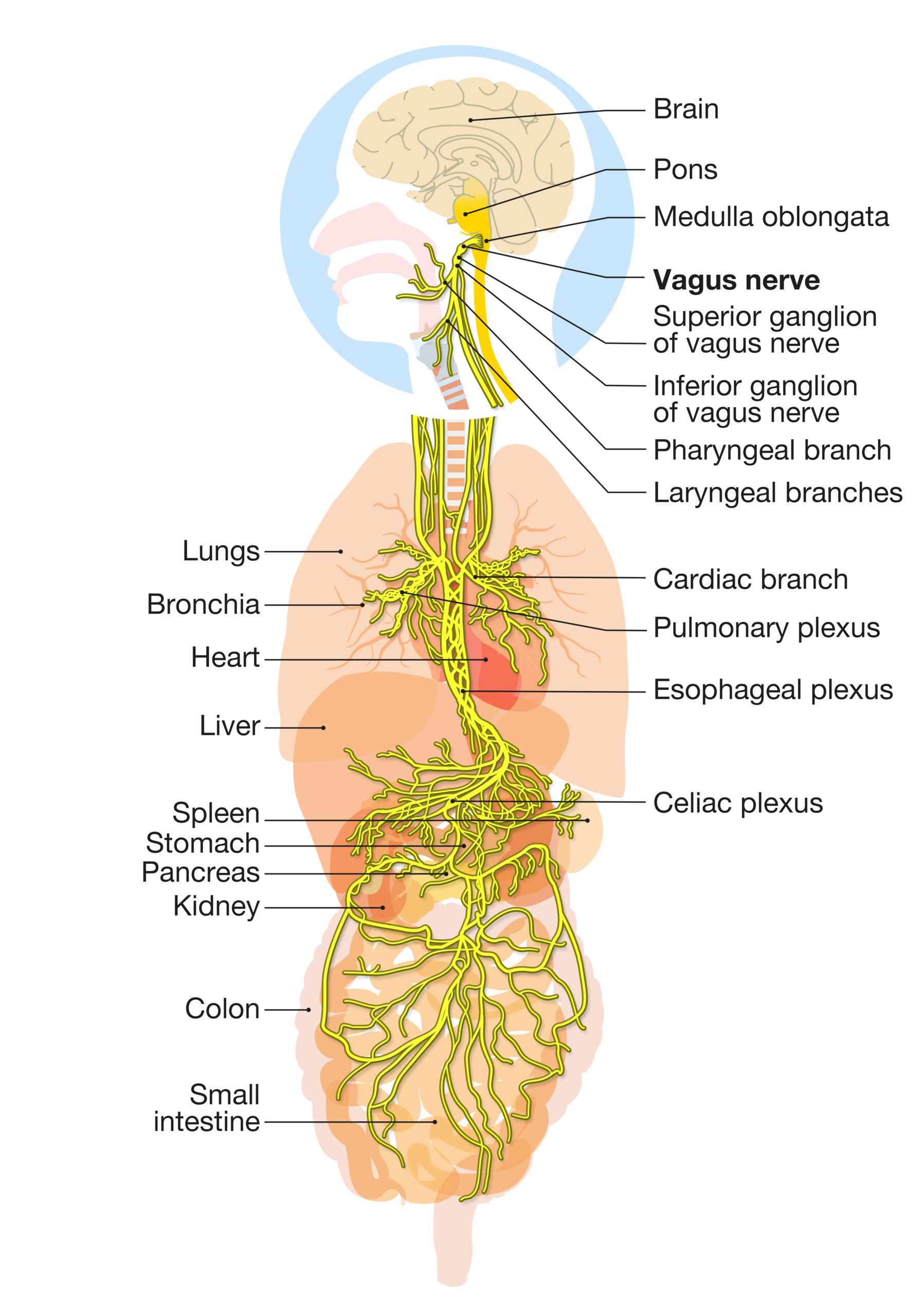Vagus Nerve Function
To Understand the body is to Understand the Mind
Understanding Vagus Nerve Function
What is the Vagus Nerve?
Vagus Nerve Function, or the 10th cranial nerve, comprises the main component of the parasympathetic nervous system, driving our ability to recover from stress and illness. The Vagus Nerve is the longest nerve in the body and reaches from the base of the brain, making its way down through all the major visceral organs of the body ending at the base of the colon.
When it comes to health and emotional balance, Vagus Nerve function is key because all states of stress, anxiety, depression and dissociation can all be helped by activating the vagus nerve.
How does the Vagus Nerve Function?
This system drives the effective functioning of many bodily processes. It oversees the health of many crucial bodily functions, including control of mood, immune response, digestion and elimination, breathing and heart rate. It’s important to know this because it explains why so many emotional struggles are linked to disorders of the gut, heart and inefficiencies in our immune system. In normal circumstances, once we have been in a state of sympathetic arousal, Vagus Nerve function should counterbalance those effects and bring us back down to balance and relaxation.
Vagus nerve function also co-ordinates and co-regulates with a number of other cranial nerves responsible for our social connection skills including talking, eye contact, facial expressions and even our ability to tune in to other people’s voices. The vagus nerve connects the brain to major systems in the body enabling essential body-mind-brain communications.

The vagus nerve functions as a communication superhighway, bringing sensory information back and forth between the inner organs, such as gut, liver, heart, and lungs and the brain to help them to function effectively. This suggests that much our parasympathetic nervous system activity is guided by the state of our major internal organs. If our major organs aren’t regulating as they should then it will be hard to feel the full effects of rest and restoration, likewise, stress will negatively impact the proper functioning of these organs.
Since the Vagus Nerve is also connected to how we experience social connections it suggests that the nature of our social interactions is inextricably linked to vagus nerve function. When we have good, comfortable relationships then we can restore, if relationships are a struggle then our health and ability to bounce back from stress and illness will be compromised.
This also suggests that when looking for ways to help ourselves remain healthy, balanced and stress free then we can target body based self care, such as, breathing and movement exercises, targeting the visceral organs in order to influence healthy parasympathetic activity.
